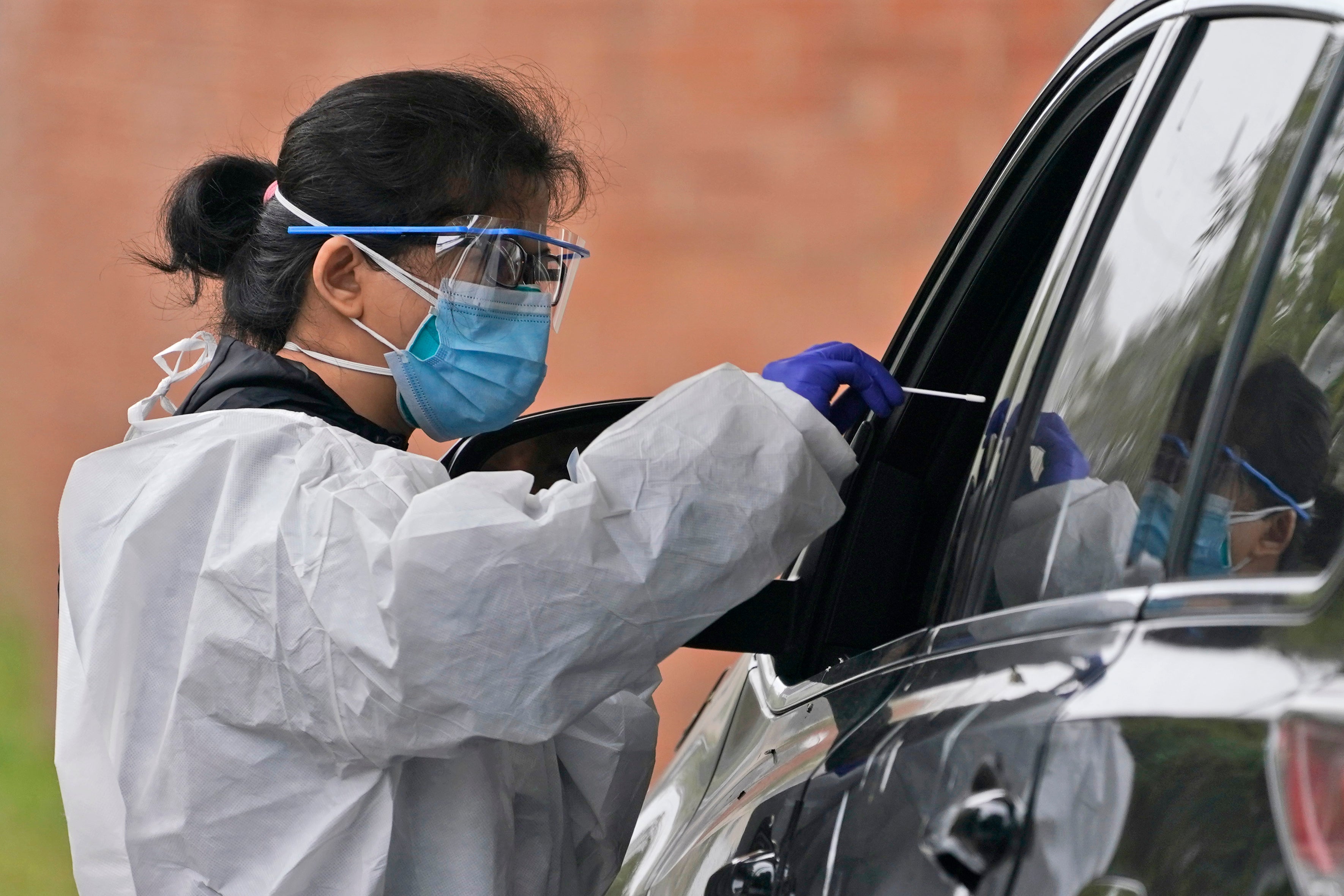CDC redefines COVID-19 close contact, adds brief encounters
U.S. health officials are redefining what it means to have close contact with someone with COVID-19

Your support helps us to tell the story
From reproductive rights to climate change to Big Tech, The Independent is on the ground when the story is developing. Whether it's investigating the financials of Elon Musk's pro-Trump PAC or producing our latest documentary, 'The A Word', which shines a light on the American women fighting for reproductive rights, we know how important it is to parse out the facts from the messaging.
At such a critical moment in US history, we need reporters on the ground. Your donation allows us to keep sending journalists to speak to both sides of the story.
The Independent is trusted by Americans across the entire political spectrum. And unlike many other quality news outlets, we choose not to lock Americans out of our reporting and analysis with paywalls. We believe quality journalism should be available to everyone, paid for by those who can afford it.
Your support makes all the difference.U.S. health officials Wednesday redefined what counts as close contact with someone with COVID-19 to include briefer but repeated encounters.
For months, the Centers for Disease Control and Prevention said close contact meant spending a solid 15 minutes within 6 feet of someone who tested positive for coronavirus. On Wednesday, the CDC changed it to a total of 15 minutes or more — so shorter but repeated contacts that add up to 15 minutes over a 24-hour period now count.
The CDC advises anyone who has been in close contact with a COVID-19 patient to quarantine for two weeks.
The change may prompt health departments to do contact tracing in cases where an exposure might previously have been considered too brief, said Dr. William Schaffner, a Vanderbilt University infectious diseases expert.
It's also serves notice that the coronavirus can spread more easily than many people realize, he added.
The definition change was triggered by a study of a 20-year-old Vermont correctional officer, who was diagnosed with a coronavirus infection in August. The guard, who wore a mask and goggles, had multiple brief encounters with six transferred prisoners before test results showed they were positive. At times, the prisoners wore masks, but there were encounters in cell doorways or in a recreational room where prisoners did not have them on, the report said.
An investigation that reviewed video footage concluded the guard's brief interactions totaled 17 minutes during an 8-hour shift.
In a statement, CDC officials said the case highlights again the importance of wearing masks to prevent transmission.
___
The Associated Press Health and Science Department receives support from the Howard Hughes Medical Institute’s Department of Science Education. The AP is solely responsible for all content.